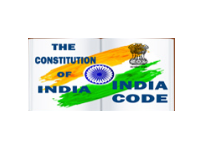Organisation Under DOPT
| Organisation | Services / Functions |
|---|---|
CBC  | |
LOKPAL  | |
iGOT  | |
UPSC  | The Constituent Assembly, after independence, saw the need for giving a secure and autonomous status to Public Service Commissions both at Federal and Provincial levels for ensuring unbiased recruitment to Civil Services as also for protection of service interests. With the promulgation of the new Constitution for independent India on 26th January, 1950, the Federal Public Service Commission was accorded a constitutional status as an autonomous entity and given the title – Union Public Service Commission |
SSC  | The Estimates Committee of Parliament, in its 47th Report (1967-68), recommended the setting up of a Services Selection Commission for conducting examinations for recruitment to lower categories of posts. Pursuant to this, and as an interim measure, an Examination Wing was initially added to the Secretarial Training School, subsequently renamed as the Institute of Secretariat Training and Management (ISTM). The Administration Reforms Commission (ARC), in its Report on Personnel Administration, drew pointed attention to the fact that bulk of the staff of the government at the Centre and in the States belonged to class III and class IV categories. Referring, in particular, to the identical nature of qualifications stipulated for entry into such posts in various offices, the Commission advocated pooling of the requirements of non-technical posts by different departments and selection of personnel either by joint recruitment or through a recruitment board. It was in pursuance of this recommendation that the Government of India decided to constitute a Subordinate Services Commission under an Executive Resolution-No. 46/1/(S)/74-esstt. (B) dt. 4th November, 1975 (Appendix 1). It was renamed as Staff Selection Commission (SSC) on September 26, 1977. |
PESB  | The Public Enterprises Selection Board [P.E.S.B] is a high powered body constituted by Government of India Resolution dated 3.3.1987 which was subsequently amended from time-to-time, the latest being on 19.4.2000. The P.E.S.B has been set up with the objective of evolving a sound managerial policy for the Central Public Sector Enterprises and, in particular, to advise Government on appointments to their top management posts. |
LBSNAA  | The Lal Bahadur Shastri National Academy of Administration, India's premier research and training institute on administration and public policy, is located in Mussoorie, 2000 meters above sea level, in the foothills of Himalayas. It is 300 road kilometers from the national capital, New Delhi. The LBSNAA represents an interesting confluence of academic rigour and intellectual freedom. The campus is a virtual melting pot where people across generations,from every part of our country and beyond, come in contact with each other. It is a place where participants from every state of our diverse country, speaking different languages, with diverse qualifications and socio-educational backgrounds meet, interact and learn from each other. |
ISTM  | Established in the year 1948, with the ideals of "Efficiency and the Public Good", the Institute of Secretariat Training & Management was mainly engaged in the task of imparting training to the various grades of officers in the Central Secretariat and allied services. During the initial years, the Institute was conducting foundational and refresher in-service training programs for Assistants and Section Officers of the Central Secretariat and other allied services. |
CVC  | The Central Vigilance Commission was set up by the Government in February,1964 on the recommendations of the Committee on Prevention of Corruption, headed by Shri K. Santhanam, to advise and guide Central Government agencies in the field of vigilance. |
CBI  | The Central Bureau of Investigation traces its origin to the Special Police Establishment (SPE) which was set up in 1941 by the Government of India. The functions of the SPE then were to investigate cases of bribery and corruption in transactions with the War & Supply Deptt. Of India during World War II. Superintendence of the S.P.E. was vested with the War Department. Even after the end of the War, the need for a Central Government agency to investigate cases of bribery and corruption by Central Government employees was felt. The Delhi Special Police Establishment Act was therefore brought into force in 1946. This Act transferred the superintendence of the SPE to the Home Department and its functions were enlarged to cover all departments of the Govt. of India. The jurisdiction of the SPE extended to all the Union Territories and could be extended also to the States with the consent of the State Government concerned. The DSPE acquired its popular current name, Central Bureau of Investigation (CBI), through a Home Ministry resolution dated 1.4.1963. Initially the offences that were notified by the Central Government related only to corruption by Central Govt. servants. In due course, with the setting up of a large number of public sector undertakings, the employees of these undertakings were also brought under CBI purview. Similarly, with the nationalisation of the banks in 1969, the Public Sector Banks and their employees also came within the ambit of the CBI. |
IIPA  | IIPA is an autonomous academic institution of national eminence for training, research and information dissemination in streams related to the ethos of Public Administration. Conceived by well-known US expert Paul H. Appleby and Founded and promoted by Pandit Jawaharlal Nehru, it is now known internationally as a premier centre for Training and Research in Public Administration and Management |
CIC  | Central Information Commission is constituted by the Central Government through a Gazette Notification. The Commission includes one Chief Information Commissioner (CIC) and not more than 10 Information Commissioners (IC) who will be appointed by the President of India. |






 कार्मिक एवं प्रशिक्षण विभागDepartment of
कार्मिक एवं प्रशिक्षण विभागDepartment of 













